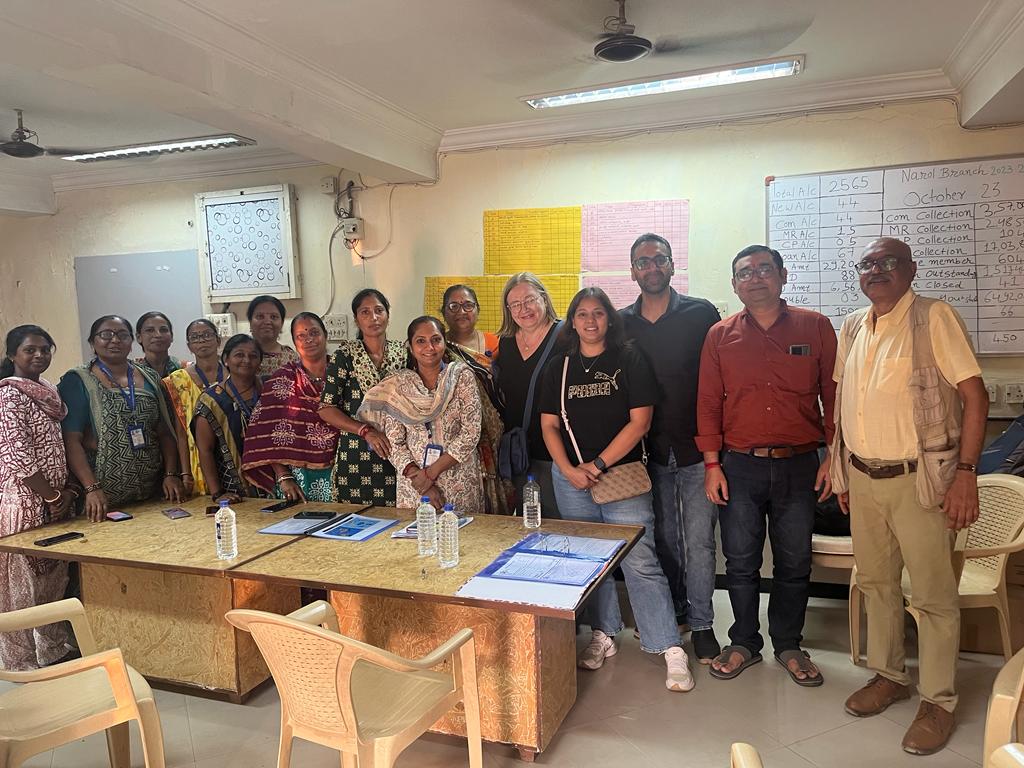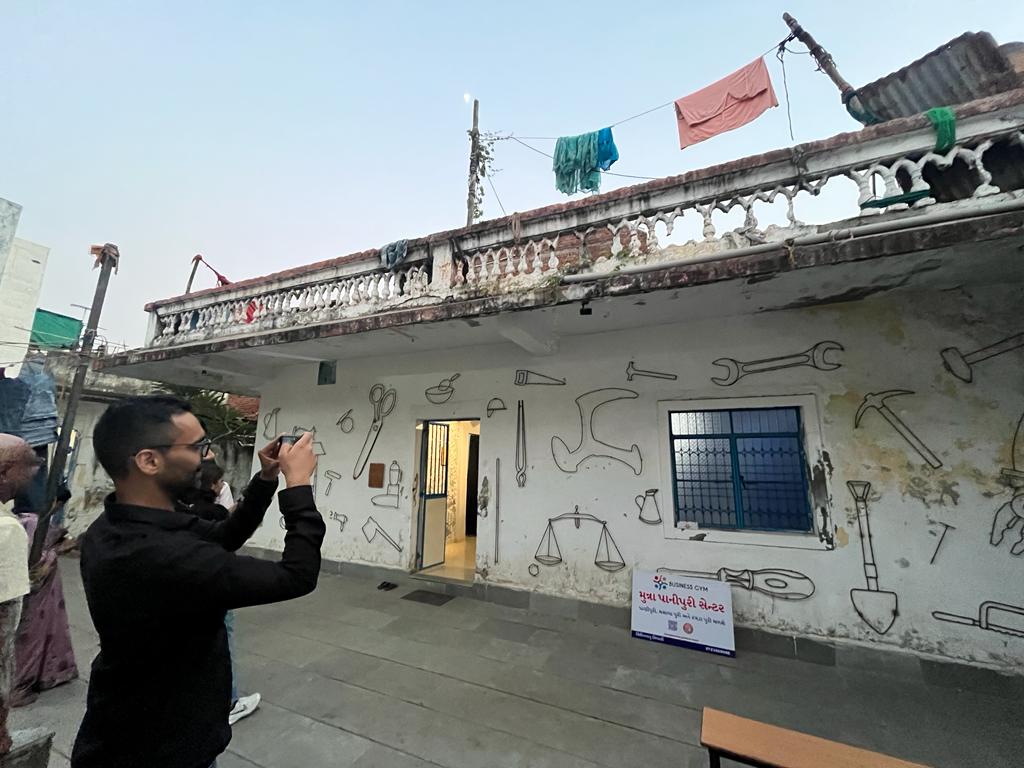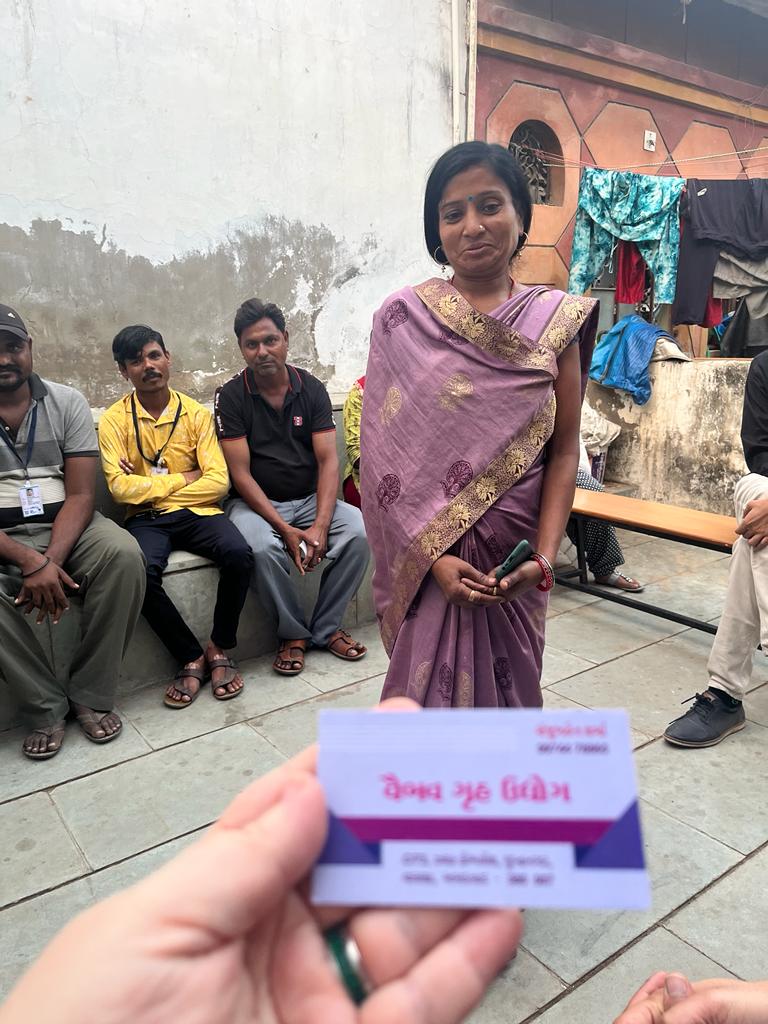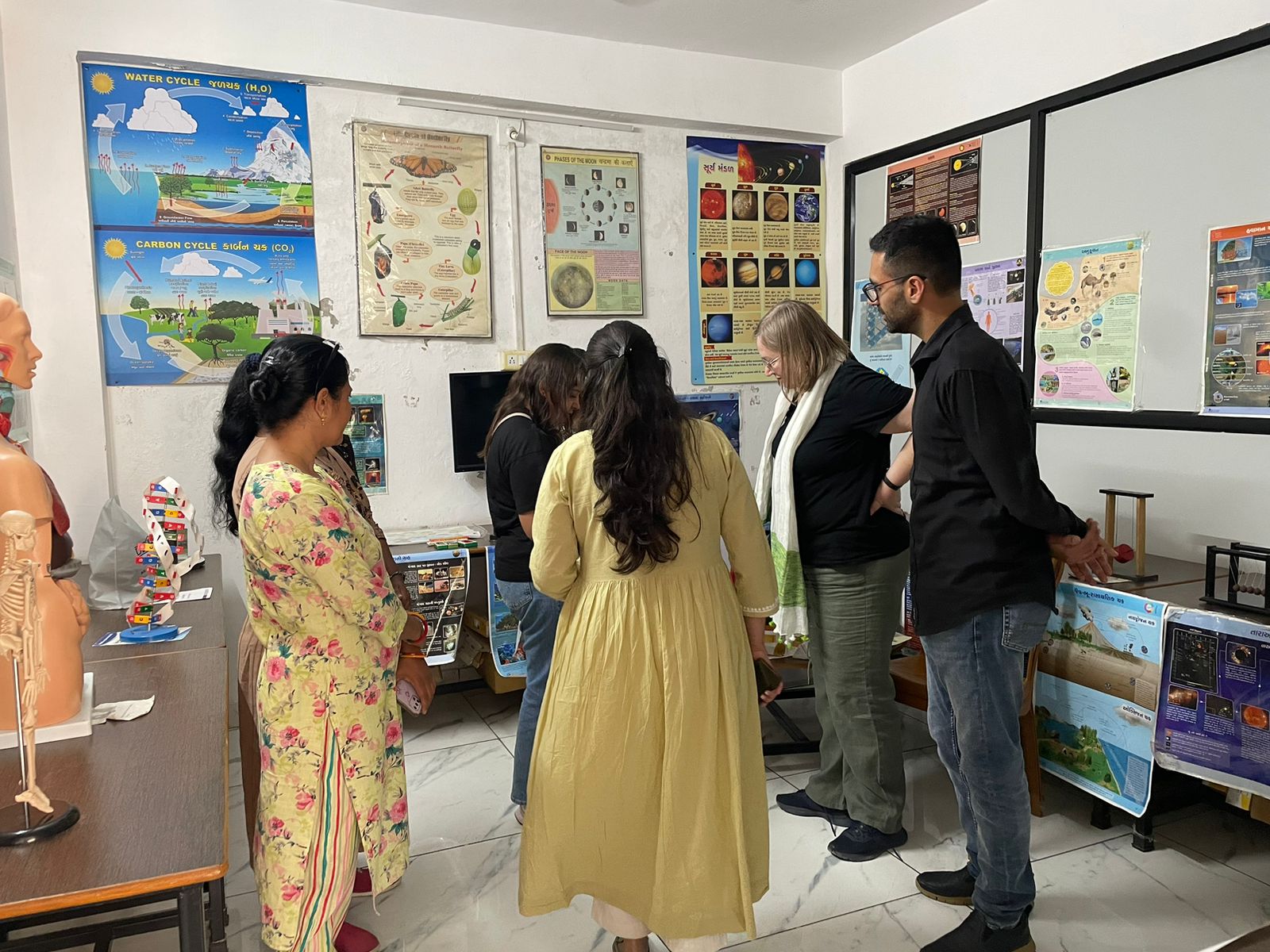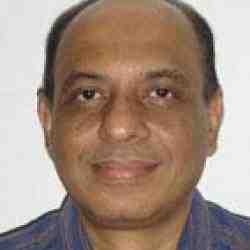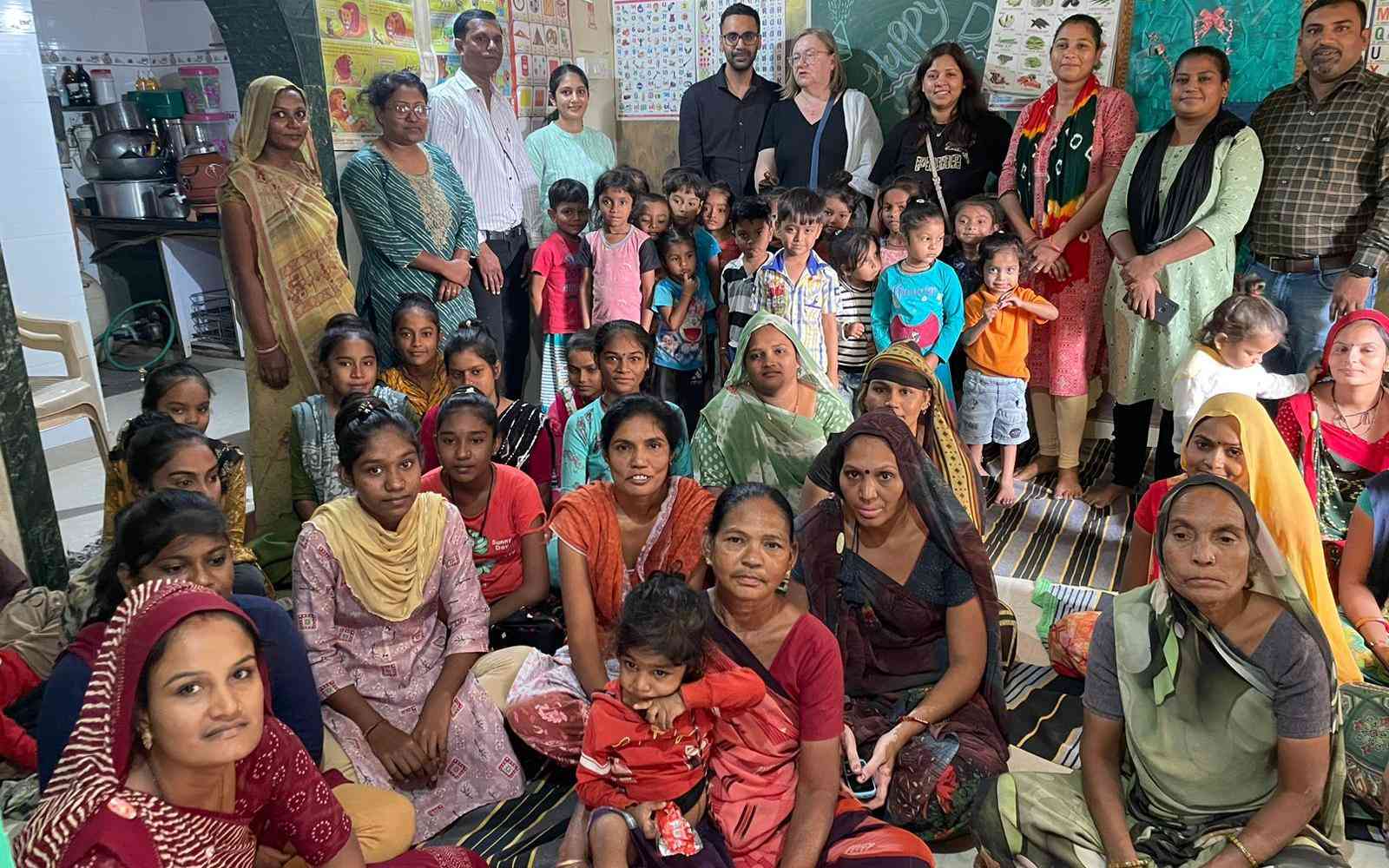
Building Bridges
Collaboration and learning can go far, sometimes thousands of miles. What follows is a conversation with three IKEA co-workers about their journey alongside Ashoka Fellow Rajendra Joshi and his team from Saath, an organization that enhances the lives of the urban poor through an integrated approach. This is done by providing services, advocacy and facilitating opportunities given by various stakeholders in various cities in Gujarat and Rajasthan states in India. Through Dela, a systems change programme co-created by Ashoka and IKEA Social Entrepreneurship, entrepreneurs are paired with a team of experts, including IKEA co-workers, to support their journey to scale. Systems change is achieved when addressing the root causes of problems rather than their symptoms, by shifting and transforming structures, customs, mindsets, power dynamics and rules through collaboration across a diverse set of actors on a local, national and global level. During the programme, which usually lasts a year, IKEA co-workers collaborate with Ashoka Fellows, working on solving tough problems and coming up with new ideas to scale their initiatives. For Sandal Kakkar, Soumya Parvatiyar, Joanna Cymbalista and Rajendra Joshi, the journey took them from the Dela Summit in the Swedish countryside to the bustling streets of New Delhi in India. The summit is a key moment in the Dela Accelerator where all participants come together to celebrate and transition from the development of their strategies to implementation. There, they dove deep into Rajendra’s organization Saath and its work on the ground. Sandal Kakkar (IKEA co-worker): Well, I was part of the second edition of Dela in 2020, where I supported Ashoka Fellow Arbind Singh, the founder of the National Association of Street Vendors of India. Being part of Dela was a really wonderful opportunity to contribute something meaningful as well as gather learnings that I could maybe bring back into my work at IKEA. So, for Dela IV, I grabbed the opportunity to be a part of it from the very start and in an even deeper capacity. I got matched with Ashoka Fellow Rajendra Joshi and some of his team members at Saath, Abid Hira and Kruti Javeri. It’s been a wonderful journey since. Soumya Parvatiyar (IKEA co-worker): I joined IKEA in January last year and I came across the Dela programme soon afterwards. Within my role at IKEA, I was already working in the scope of social suppliers, so getting involved in Dela sparked my interest. I was personally very interested in working on this project and making an impactful contribution. Rajendra Joshi (Ashoka Fellow): I’ve been an Ashoka Fellow since 2009 and two years ago, we started intensive work with micro-entrepreneurs and nano entrepreneurs in the informal sector in India. When we got deep into it, I realized that there is so much more that can be done to improve their lives and businesses. And I also believe things happen when they’re meant to happen. I was invited to apply for the Dela programme to focus on developing a systems change approach in the field of micro-entrepreneurship. If any impact has to be made, it has to be systems change, and I thought this fit perfectly with what we were trying to accomplish. So, I applied and fortunately got selected. Rajendra (Fellow): I had two main hopes. The first was growing my knowledge of systems change, and what that means for Saath. For over 30 years, we’ve have been doing a lot of work, and some of it has been systems change, but it hasn’t been really a structured approach. The second hope was getting connected with people who have had very diverse experiences. When you are talking about systems change, it cannot only be a social entrepreneur; you need academics, people from the business world, consultants. You need certain stakeholders, and I thought that all this is something that the Dela programme was offering. Abid Hira (Saath): I was hoping that we would have the space and support to be able to take a step back to understand the bigger problem before doing the tasks or activities. Joanna Cymbalista (IKEA): I think it was a combination of excitement and anxiety because it’s something that is not directly connected to what I do. To let yourself be vulnerable, listen, understand, and see based on your knowledge or your experience, where you can really be supportive. The many fantastic things this group has been doing for such a long time and how they make impossible things possible… it is blasting. And it’s also been giving me input into my own job. To basically be more successful and more grounded. Soumya (Co-worker): In June last year, Rajendra and the others met in Sweden at the Dela Summit. I unfortunately couldn’t join, but we connected through online calls, and it was so thrilling to talk together about all the great work at Saath. Since Joanna and I are based in India, we asked Sandal: “Do you have any plans to be in India anytime soon?” We know that meeting in person is very different from online, and we wanted to see first-hand the amazing work Saath has been doing. Rajendra (Fellow): I met Soumya online and Sandal and Joanna in person during the Summit. When the idea of them visiting us was suggested, we were very keen because talking and describing is one thing, but it´s another meeting in person, interacting. Meetings on the ground make a big difference. I was all for it. Sandal (Co-worker): The memorable aspect is Saath itself. It’s just unbelievable to see the passion that they have for what they do, the knowledge that they share, and how engaged they are with their community. That stays with me, how they’re able to create change for people who live in a context of vulnerability. Joanna (IKEA co-worker): I’m very impressed by the Saath team and how they work. They’re structured but without bureaucracy and have a smart approach to business. I learned how to be a better manager, a better leader and how to look holistically for what is important for the business. I will always be super grateful. They are very humble with the achievements they’ve made, and this is also a learning: to be happy but not overly proud because there is still a job to be done. Sandal (IKEA co-worker): I like to put it under the bracket of three P´s: Passion, Persistence and Perseverance. The passion that Raj, Abid, Kruti and the whole team at Saath have for solving a certain issue in society via engaging with the system, and the stakeholders in the system, is incredible. So that is something that we should all bring back to our work. Persistence is about energy and consistency in a task, which is again quite incredible the way Saath does it. And Perseverance, because to try something once is one thing, but Raj has been doing it for 40 years. For 40 years! That´s a different story. So how to bring those three P´s into the business, into life, I think that’s what I have taken back, and I would like to bring into all the work that I do. Soumya (IKEA co-worker): Definitely one insight that I take away is that technology can be a really good friend. I’m really intrigued by financial literacy, as basic as daily wage calculation. And when we were in the field, I saw they had an application that could show what their financial portfolio looks like, and it is something that is at the back of my mind because, in a way, we are touching their lives through our IKEA business in that way. It’s a very long and impactful journey. Soumya (Co-worker): I think it´s about being grounded and humble, that’s a very important takeaway because together we are trying to — specifically Saath in the forefront- change the system. It’s not a one-day job, and as Raj said: “If people win, I’m winning with them.” That simply line sticks with me and gives me goosebumps, and even if there is 1% of that in me, I would be very humble to have that. Kruti Javeri (Saath) — I have been involved in the on-ground implementation of the business program, and I think once we got involved in the Dela journey, we realized that the work and the kind of impact we were looking at in the upcoming years needed a very structured approach. Through Dela, we were able to break down our work in a way to implement it in our day to day. Joanna (IKEA co-worker): If anyone wants to really join an accelerator programme like Dela, I would tell them to dedicate their time and be fully immersed in the topic because it’s important. It’s not like a part-time job where you can work on e-mails and at the same time focus on something else. Either you are fully in or it’s better not to start. My manager asked me: “Would you manage to do it?” And I was like: “If I’m in, I’m in”. So, it’s my business to really dedicate my time and my passion and my interest. Rajendra (Fellow) — Systems change cannot be brought in by one person, one organization. It has to be a stakeholder process, and that is what we have been doing in Dela with support from IKEA. It is wonderful. Rajendra (Fellow): The structured process that we went through during the strategy phase and the scoping phase was very useful and we have started applying it. So that is really one big learning for us. Kruti Javeri (Saath): The whole process really helped us see things at a macro level, take a step back from the day-to-day operation, and think in a more structured manner. The things that we’ve picked up during the journey are something we could incorporate in the various works at an individual and at an organizational level. Abid Hira (Saath) — It’s about understanding the problem at the root and dealing with that. It’s something that has helped us in a sense to work on that rather than just doing some activities. This piece is the first in a mini-series documenting co-workers and social entrepreneurs exchanging knowledge and inspiring each other to contribute towards greater impact and systems change. Watch here for more articles as they are published! The Dela programme is currently in its fifth year, and has counted four editions and 560 participants. Since the first accelerator, 65% of the participating social entrepreneurs have changed their strategies to grow their impact beyond their organizations and all of them felt more confident in pursuing systems change. As per the participating co-workers, all of them gained valuable insights, became more aware of their agency, and activated others for social impact. Learn more about the programme and meet the current cohort here.
Q: How and why did you join the Dela programme?
Q: Before joining, what were your hopes and expectations? How did you feel about joining the programme?
Q: How did the idea for the trip to New Delhi come about?
Q: What were some of the most memorable experiences or interactions you had during your trip? Is there a particular story or encounter that stands out?
Joanna (Co-worker): The biggest aha moment for me (and there were a few!) — is seeing how the work Saath does brings pride to people who live in challenging environments, gaining ownership of their own accomplishments. They’re proud of their business and knowing that they can support families. This touching, feeling, being, listening, and experiencing. It was amazing.
Abid (Saath): For me, the highlight was meeting the IKEA Foundation and Swedish Chamber of Commerce at the Swedish Embassy. To see Sandal, Soumya and Joanna talking about Saath and what we do in such a knowledgeable and passionate way, it really gives us confidence that we are on track, that people understand and are excited about what we are doing.
Q: Have you brought back any learnings from the experience? Were you able to apply them in your work?
Q: Have your perspectives or values changed in a way because of your involvement in Dela?
Q: What would you tell other IKEA employees who are thinking about joining the Dela programme?
Q: Why do you think it’s important to support systems change?Q: How has the team and being a part of the Dela programme impacted Saath over the last few months?
